http://www.firstpost.com/business/the-great-indian-irony-farmers-starve-while-politicians-agriculture-income-continue-to-rise-3360212.html
Loan waivers, farmer suicides, private wealth and public starvation
There is something horrible, almost Kafka-esque, that is taking place in Maharashtra.
Politicians across the spectrum have been demanding loan waivers. When a banker cautions against erosion of credit discipline, legislators seek to pass a privilege motion against her.
And when a member of parliament slaps a public official, then brags about how he hit him with a slipper some 25 times and even broke his spectacles, the police does not arrest him. Interestingly, the legislators in the state do not clamour for his dismissal. There is no talk about preserving the dignity of the legislator any more.
Something is certainly going wrong when one looks at other bits of statistical data that are available from websites (http://myneta.info/). True there are many gaps in the information that the public would like to know about, but the little that is available is disturbing.
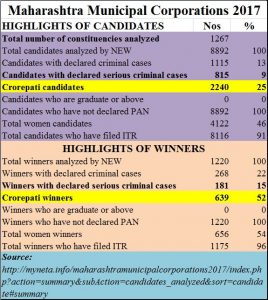 Consider the following: More than half of the people elected just recently in the municipal elections for the state of Maharashtra, declared wealth of over Rs.1 crore. Many of them, according to anecdotal information available, showed this wealth being derived from agricultural income. Agricultural income is significant because it is the only income (other than income earned by political parties) that is entirely exempt from income tax. It can therefore become a very effective laundromat (http://www.asiaconverge.com/2016/07/indias-biggest-laundromat-agriculture/)
Consider the following: More than half of the people elected just recently in the municipal elections for the state of Maharashtra, declared wealth of over Rs.1 crore. Many of them, according to anecdotal information available, showed this wealth being derived from agricultural income. Agricultural income is significant because it is the only income (other than income earned by political parties) that is entirely exempt from income tax. It can therefore become a very effective laundromat (http://www.asiaconverge.com/2016/07/indias-biggest-laundromat-agriculture/)
This is where the situation becomes bizarre. You have many of the state’s elected representatives claiming that they have made enormous money through agriculture. Yet these very legislators are willing to also claim that many farmers commit suicide because they could not earn money.
This is a terrible contradiction because it means that the actual truth could be one of the following alternatives
- The elected representatives made money for themselves but did not educate the farmers on how to improve their own lot. If they do not care for people around them, should they be considered representatives of the people?
- The moneys were declared from other sources, but were conveniently (and falsely) declared as agricultural income. Should they then not be hauled up for perjury, and be disqualified from holding any electoral post?
- Or could it be that the stories about farmer suicides were trumped up?
The legislators need to tell us which of the above is the true picture.
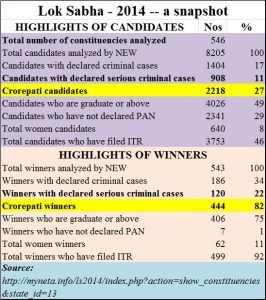 Ironically, the situation finds a mirror image even when we look at the national profile of politicians. At least 27% of the legislators have declared wealth of over Rs.1 crore, much of it through agricultural income.
Ironically, the situation finds a mirror image even when we look at the national profile of politicians. At least 27% of the legislators have declared wealth of over Rs.1 crore, much of it through agricultural income.
Surely, you cannot have a country where one section of people can make money from agriculture, while another (significantly larger) section cannot. As William Shakespeare would have remarked, “Something is rotten in the state . . . .”
In fact the comptroller and auditor general (CAG) itself has begun enquiring on the nature of agricultural incomes filed (http://www.governancenow.com/views/columns/a-case-taxing-agricultural-income-tax-farmers). It will be interesting to see how quickly this report gets tabled, and what its findings and recommendations are.
There are reasons to feel sceptical about such an enquiry. It may be recalled that these columns had already pointed out how the government could have easily unearthed huge amounts of black money if it had only gone after the 8 lakh declarants who had declared exorbitant amounts of income as agricultural incomes during FY 2011 and FY2012 (http://www.firstpost.com/politics/demonetisation-atm-chaos-pm-modi-should-have-gone-after-8-lakh-wealthy-farmers-not-common-man-3104572.html). The income declared was eight times the cumulative GDP for those two years. That the government has chosen not to do this points to the unwillingness and inability of the government to rein in corrupt politicians.
The scepticism becomes stronger when one watches legislators in Parliament rising up in unison decrying against “judicial overreach” just because the Supreme Court asked the government to lay down norms for benefits that elected representatives should be given (http://blogs.timesofindia.indiatimes.com/toi-editorials/delete-freebies-salaries-and-allowances-for-former-lawmakers-must-be-at-par-with-the-rest-of-india/).
This scepticism becomes sheer disbelief when one watches the manner in which even the Patna High Court has so far not come out with clear directives on a public interest litigation petition that Vijay Sharma, a retired Indian Revenue Service offier, had filed. He wanted the courts to ask the Income Tax authorities to reveal the names of the top 1,000 declarants of (of the eight lakh declarants who had filed) agricultural incomes during the two years 2011 and 2012 (https://www.thequint.com/india/2016/03/19/even-as-farmers-die-trillions-laundered-as-agricultural-income).
Farmer poverty and the soaring agricultural wealth of elected representatives do not gel. Something stinks.
And the need for judicial intervention becomes all the more crucial if one considers another number from the charts above – the number of legislators who have declared serious criminal cases against their names. But that is quite another story, to be dealt with later.









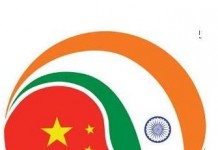


















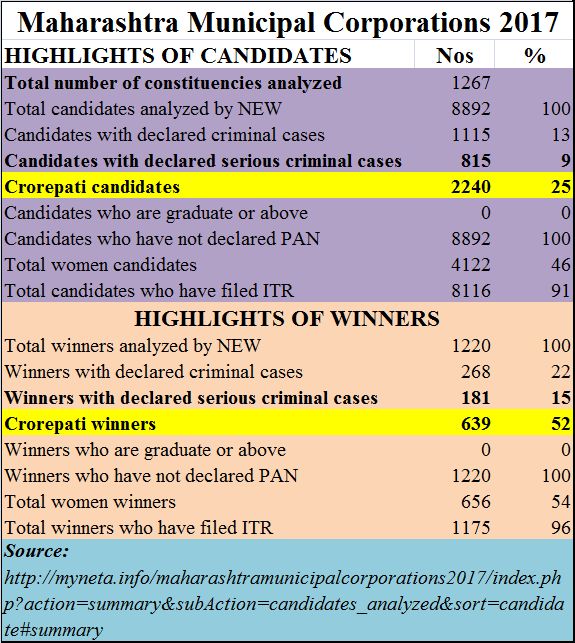



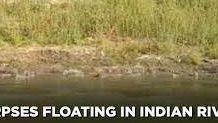






COMMENTS